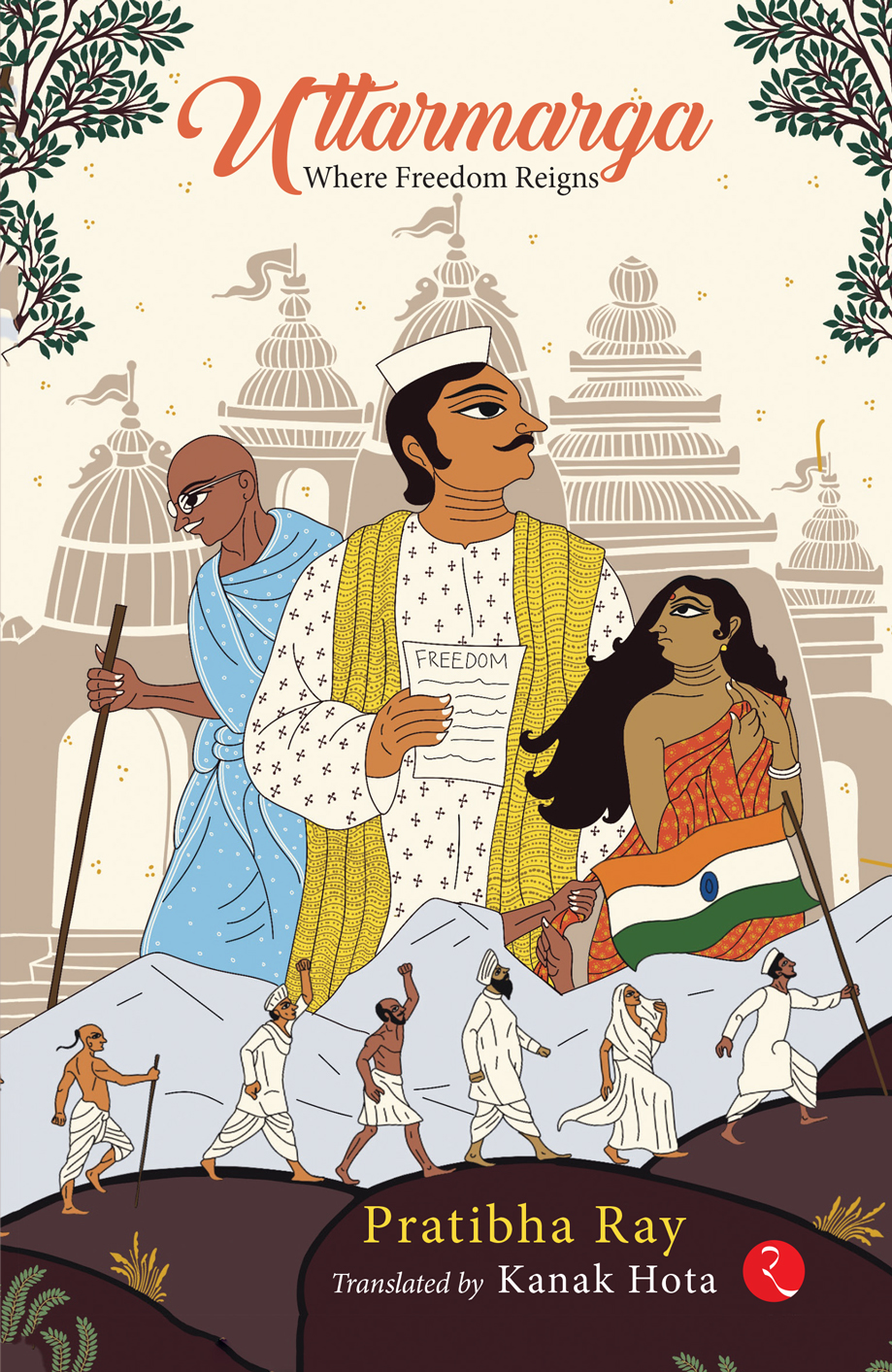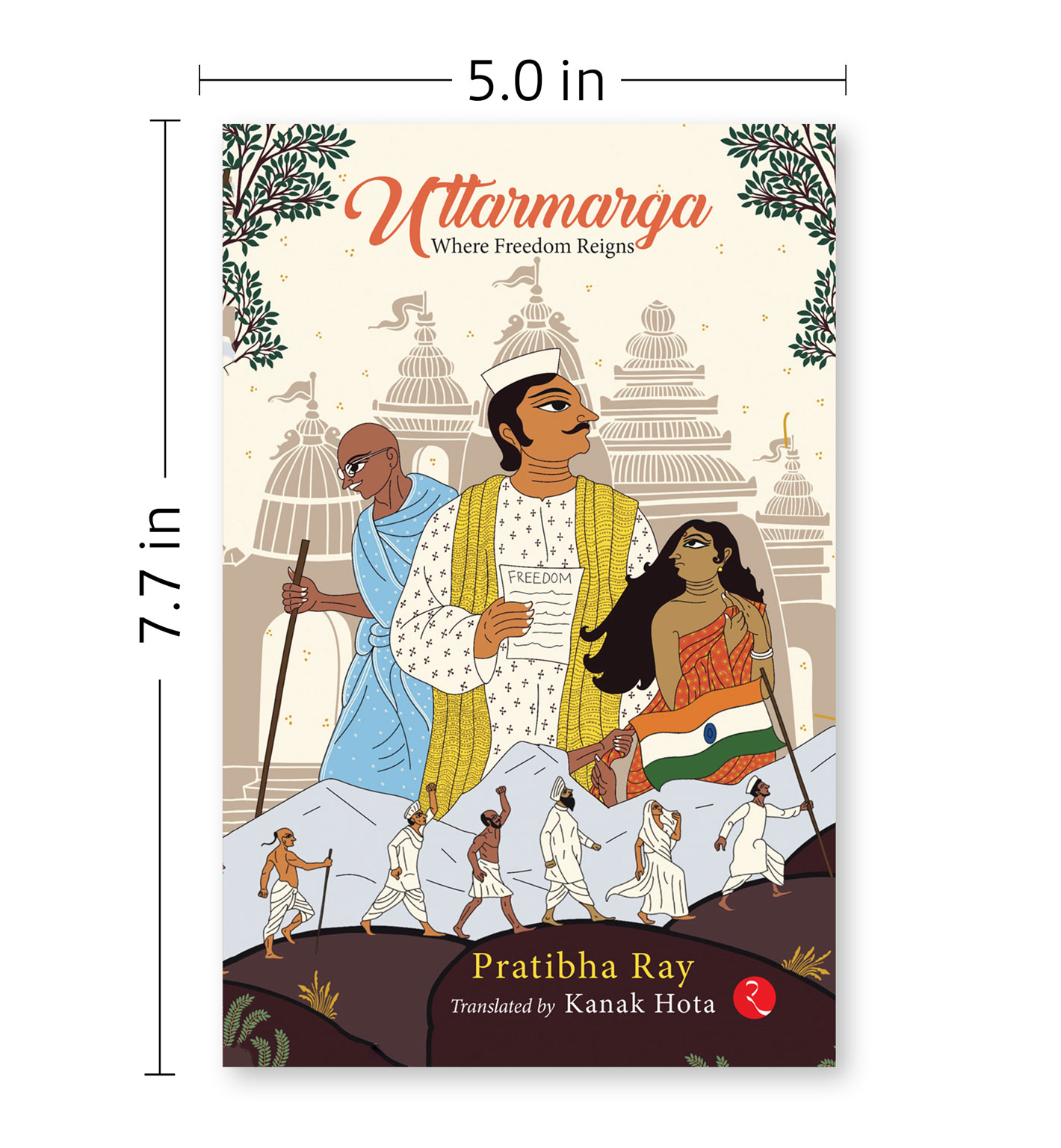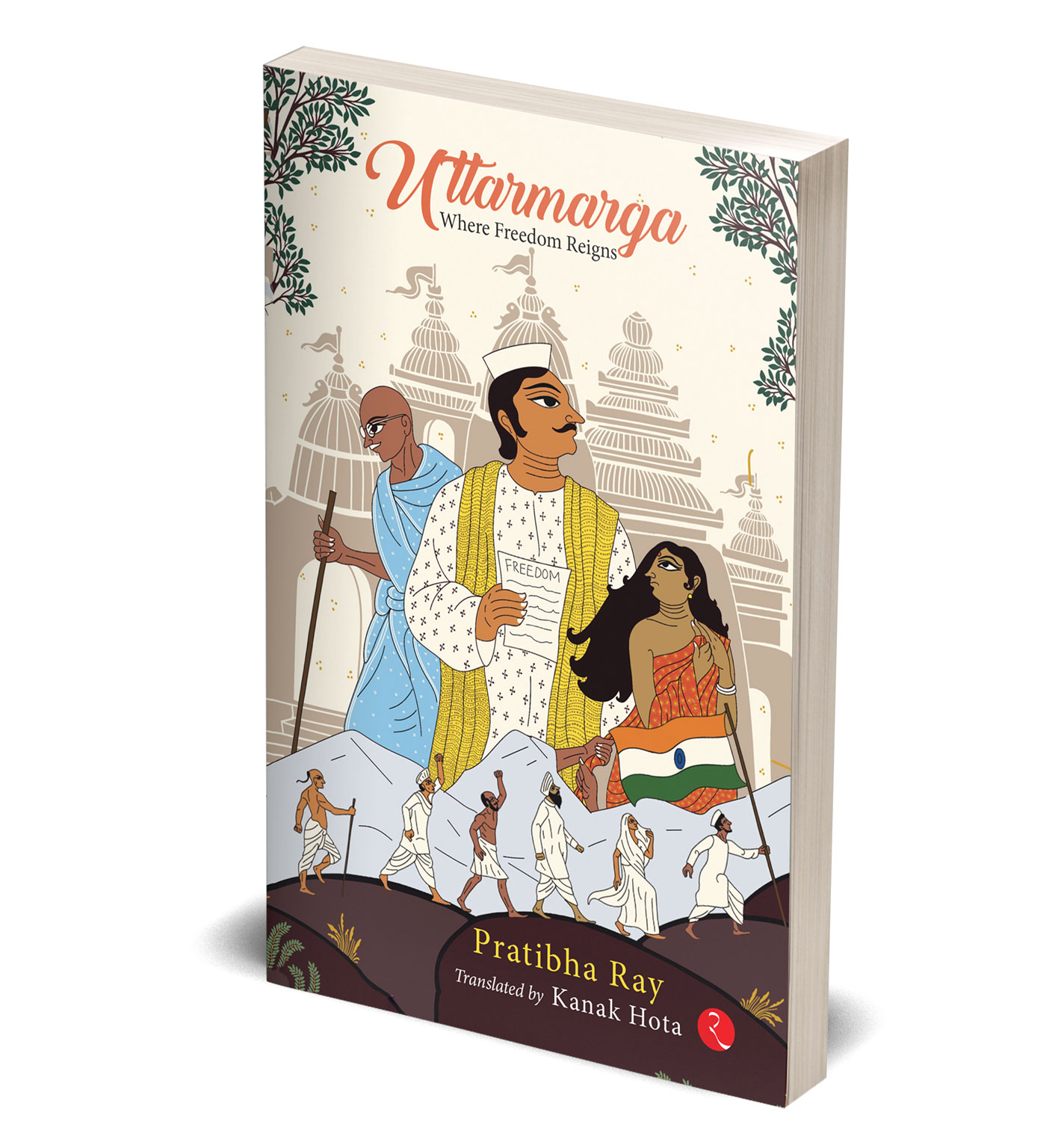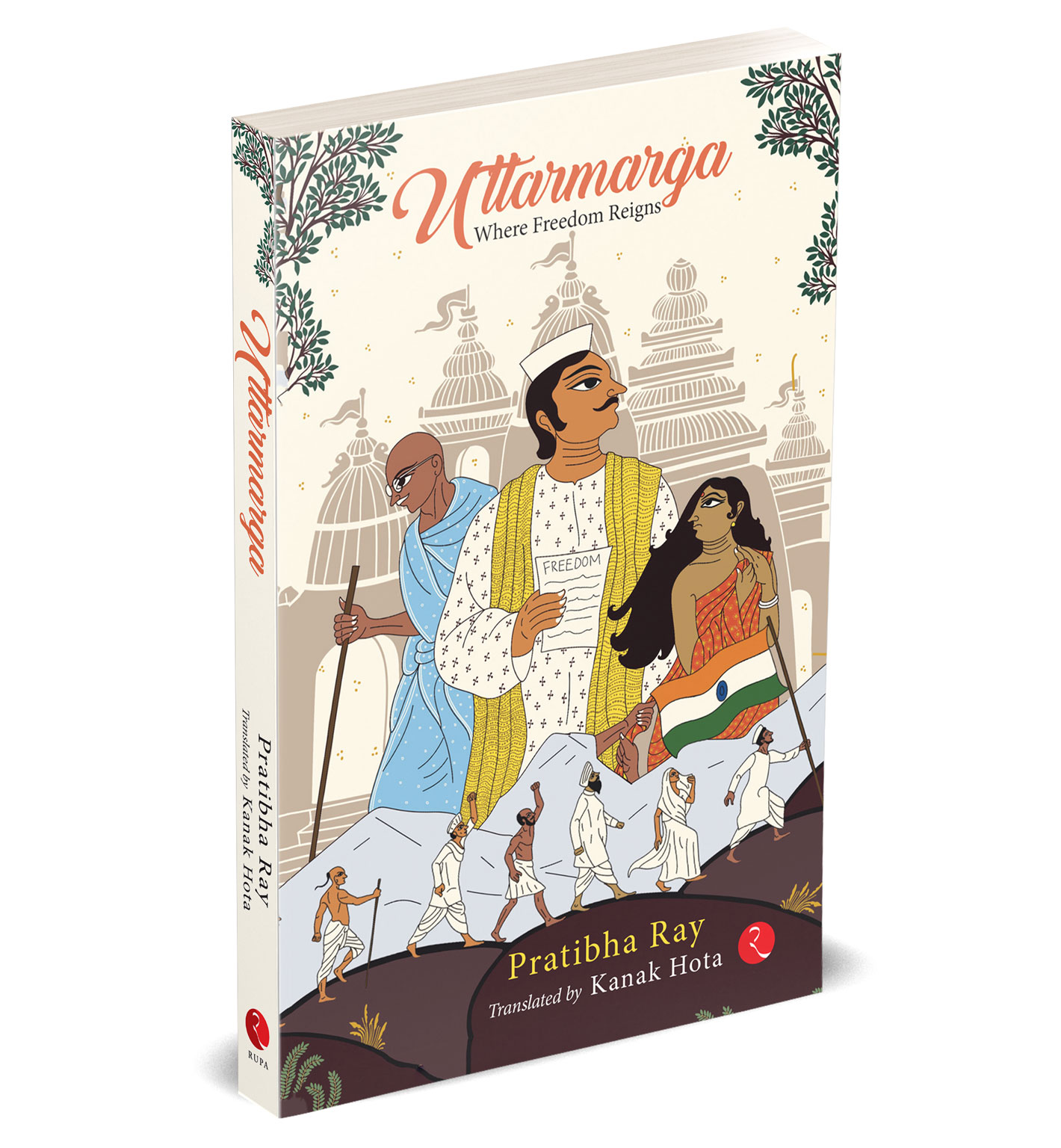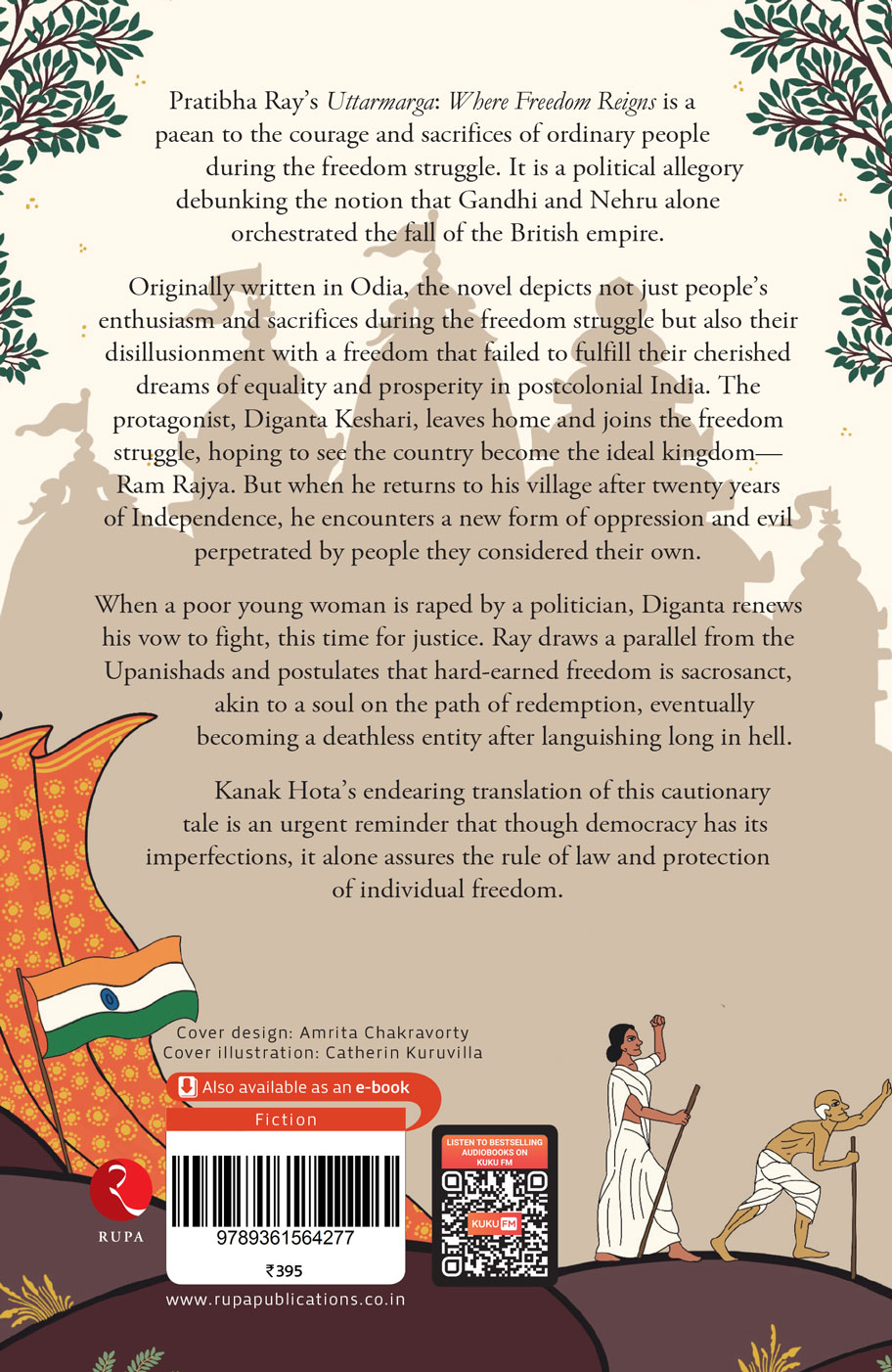Pratibha Ray’s Uttarmarga: Where Freedom Reigns is a paean to the courage and sacrifices of ordinary people during the freedom struggle. It is a political allegory debunking the notion that Gandhi and Nehru alone orchestrated the fall of the British Empire.
Originally written in Odia, the novel depicts not just people’s enthusiasm and sacrifices during the freedom struggle but also their disillusionment with a freedom that failed to fulfill their cherished dreams of equality and prosperity in postcolonial India. The protagonist, Diganta Keshari, leaves home and joins the freedom struggle, hoping to see the country become the ideal kingdom—Ram Rajya. But when he returns to his village after twenty years of Independence, he encounters a new form of oppression and evil perpetrated by people they considered their own.
When a poor young woman is raped by a politician, Diganta renews his vow to fight, this time for justice. Ray draws a parallel from the Upanishads and postulates that hard-earned freedom is sacrosanct, akin to a soul on the path of redemption, eventually becoming a deathless entity after languishing long in hell.
Kanak Hota’s endearing translation of this cautionary tale is an urgent reminder that though democracy has its imperfections, it alone assures the rule of law and protection of individual freedom.





